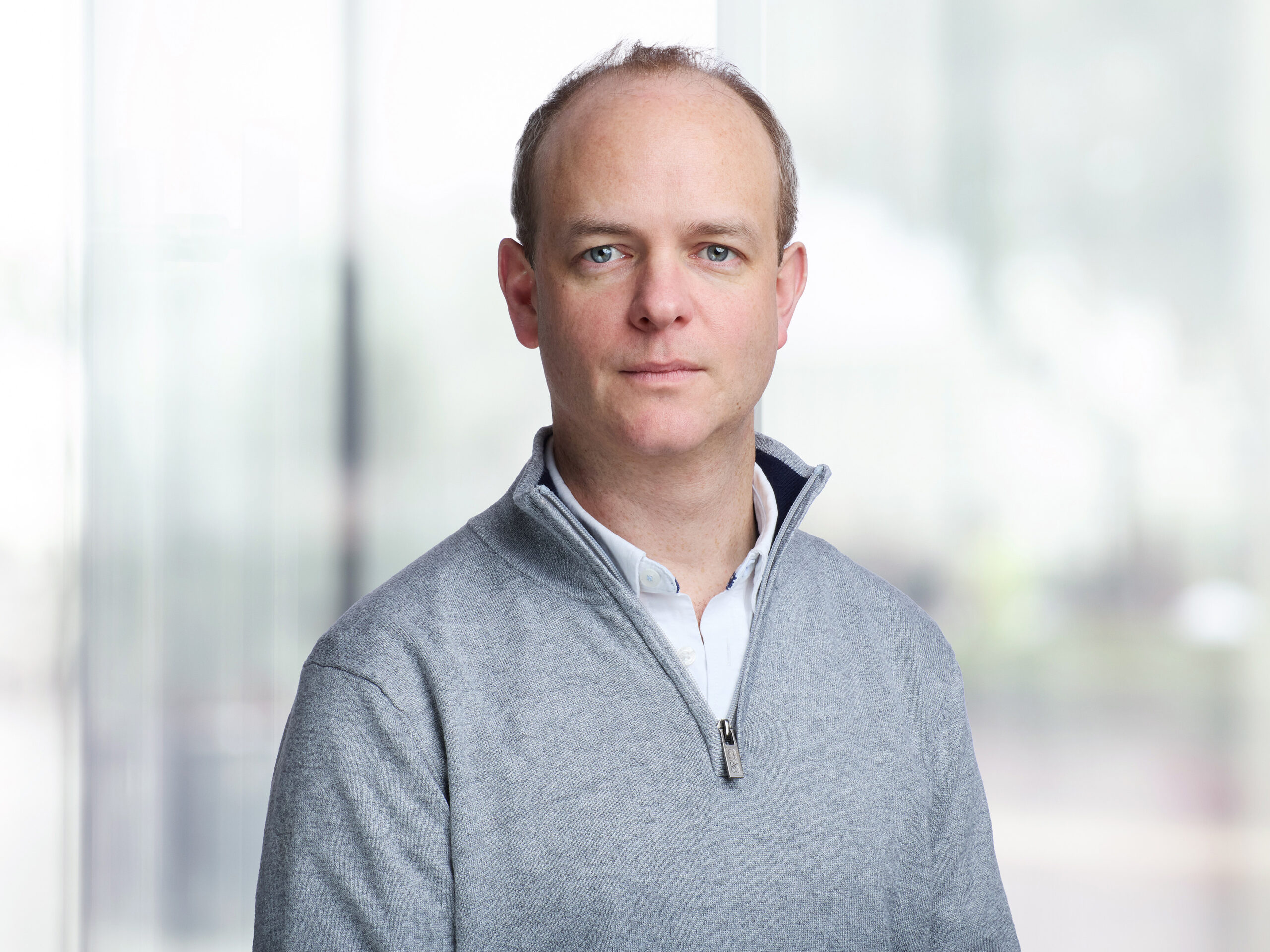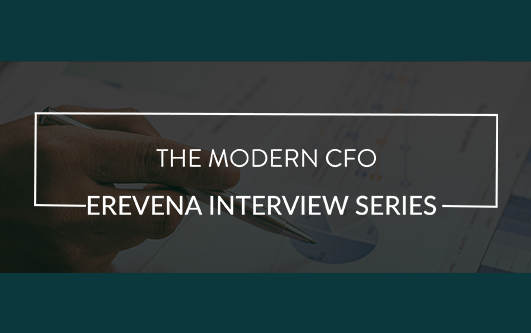Ingeborg Oie, Chief Financial Officer & Chief Strategy Officer at Huma, is driven by her passion for healthcare and a love of numbers that don’t lie! She talks to Erevena’s Harry Tolfree about why working for a purpose-driven company is so important for her.
What was your journey into finance leadership?
I don’t have the most traditional of backgrounds for a CFO. I studied biomedical engineering, after which I moved into banking. From there I worked in investor relations and then went into finance and did my accounting exams. The common thread throughout has been healthcare, which is a sector that I’m incredibly passionate about. Healthcare and having a purpose are far greater motivators than just working for a company and ensuring it is run well and has its finances in order. I have been really fortunate to work for some very purpose-driven companies.
How passionate does a CFO need to be about a company’s mission and purpose?
It’s an individual thing. Some of my CFO peers get a kick out of working in every different industry and learning something new from each one. But for me, it’s all about my passion for healthcare. Having a passion helps the CFO see the bigger picture. It makes you a better partner to your executive team colleagues because you really want to understand the products and the impact they have on patients, and any safety concerns. It takes you beyond purely the financial KPIs because you can help to build the company and allocate resources in a different way than if you were just looking at it from a spreadsheet perspective and trying to optimise numbers.
How important is the relationship between the founder/CEO and the CFO?
It is fundamental to the company fulfilling its purpose. This relationship has changed during the years I have worked in the industry. The CFO has become much more of a partner who helps the CEO with big decisions, bringing objectivity, facts and often a different perspective to the table. The founder/CEO typically has a burning passion for the company. If the CFO comes with a dry approach rather than sharing at least some of that passion, the partnership isn’t going to work as well.
Building relationships with other members of the leadership team is also important. It’s how you understand what’s going on in different areas of the company so that appropriate priorities can be set. By bringing the leadership team together in honest discussions about strategy, shareholder expectations, resourcing, etc, everyone will pull in the same direction and know where the investment priorities lie.
Can you give us some background on Huma and its purpose?
We bring a digital first approach to both healthcare and research to help people live longer, fuller lives. Our business is centred on patient use of smartphone technology which relays patient information and data to a clinician dashboard remotely. If you think about it, so many things in our lives have been changed through smartphones, such as the way we do banking or shopping, or buying services, or gaining knowledge. All of it has been influenced by our smartphones, yet healthcare has remained relatively untouched. Our premise is that you really can bring efficiencies and benefits to patients and health systems with good mobile solutions that bring more data points into the patient journey so that healthcare becomes more predictive and proactive.
Can you expand on proactive versus reactive approach to health?
The typical model today is that you become ill, so you go and see a medical practitioner who reacts to their illness. But what if we could take a more proactive approach? What if, based on collecting data points from a smartphone, we could intervene sooner? These datapoints would be relevant to people who perhaps have chronic conditions or who require regular check-ups or take regular medication. That’s what we’re doing at Huma – using technology to drive a difference in the way that healthcare is being provided. Our platforms can be adapted to any disease and they operate in the real world with patients, gathering data in real time from patient input, or from wearables, and providing information and prompts back to patients. Patient data is assessed remotely by clinicians who can offer more proactive care by better predicting when a patient needs an intervention rather than waiting for a scheduled in-person visit or when the patient feels ill enough to make their own appointment.
What is the impact of this proactive approach?
Patients are engaged in their own health and there are many studies that show this leads to better outcomes. So, it is a way of putting more power in people’s hands to manage and understand their health. This can have a profound impact. We’ve shown some of this through our own studies and the evidence we’ve generated.
What’s interesting is that this doesn’t always have to involve complicated technology or fancy devices. For example, simply measuring blood oxygen levels and the temperature of patients at home and transmitting that data makes it easier to move fast if the data suggests they may need to go into hospital. This could prevent someone getting to such a state where they need a ventilator or have a poor outcome. We’ve shown a 3-4 times lower mortality rate where our solution has been used in certain regions. That’s huge. Technology that enables the care teams as well as the patients to take the right actions at the right time can make a big difference.
Can you describe Huma’s growth?
Huma was founded in 2011 in the UK, but it wasn’t until 2018/19 that things really started to accelerate. Today, the company has more than 500 people spread across multiple countries. So, we’re now an international business that’s achieved meaningful scale. We have done some very big projects, for example partnering with governments during Covid. Some of our partners and shareholders are among the world’s largest companies, such as AstraZeneca and Bayer Pharmaceutical. Our award-winning platforms are used by more than 3,000 hospitals and clinics worldwide, with 1.8+ million active users in healthcare and 650,000+ participants across research. The Software as a Medical Device that powers one of our platforms is the only such software to hold EU MDR Class IIb regulatory certification.
What impact does rapid growth have on the role of CFO?
The CFO can play an important role in a company’s rapidly scaling phase. There’s a lot of maturing to be done, in terms both of processes and in understanding the business. It’s easy to understand what’s going on if you’re in a company of 40 people who meet each other every day, but it’s not so easy when you’ve got lots of people working remotely in different locations and different divisions. When that expansion happens in a short period of time, it’s important to have processes to rely on. This is something that the CFO can drive as they’re positioned to really understand what’s going on in all areas of the business.
How do external factors affect scaling companies?
Although most eras may claim to be unprecedented in some way, I think we can genuinely use that word for the macro climate we’ve had to navigate through. A pandemic, the ‘bubble’ of valuations and the excitement of tech and growth companies in 2021, followed now by a war in Europe and fast rising interest rates. These have all led to some pretty tricky times. This climate changes a lot of things, such as the dynamics for fundraising, how you think about treasury and investing in the business, and how you approach people retention and cost inflation.
The ability to use business information to help the company react quickly is an important facet of the CFO’s role in a fast-changing climate. At the same time, being the CFO in a start-up or scaling company isn’t the same as a CFO in a much larger company. So, in reacting to change, you should avoid trying to do too much of what good looked like when you were in a big company. Yes, it can be tempting to put in place all of those things, all of those comforts that you’re used to having, but there’s an art to getting the right amount at the right time in a scaling journey.
How do you get the right balance between wanting to grow the company rapidly and knowing where you are on that journey?
For me, it goes back to the passion for what we do because it helps me see the bigger picture. How does what we do today connect with the company mission? The answer to this drives your priorities. It helps you to identify what to focus on this year and what can wait longer. And once those priorities have been agreed on, remind everyone of them as your journey continues so that you keep the company on track.
At Huma, we use OKRs (Objectives & Key Results) as a goal setting tool. These help us have those conversations about the agreed priorities based on what the business wants to achieve and not simply on what good looks like in a particular function. One thing about OKRs is that they establish stretch targets rather than those that you know you can easily achieve. And with stretch targets it’s OK not to hit them all the time, so long as you learn a lot by measuring them and by trying to get there.
What type of people do you look to hire into finance?
You need some people who are really passionate about the detail, such as paying bills on time, getting the systems absolutely up to speed, and ensuring everything is coded correctly. Then there is a different type of person to those who’ll help you tell the story of the numbers – those who know how to present the financial planning and analysis (FPA) side of things. So, I look for this balance within the team of different personalities and skills. I am also passionate about the fact that you don’t need your whole team to come from the same background. You don’t want everyone to have taken the traditional accounting route – and maybe that’s a reflection of my own background. What you need is a good mix, which is the same for many other functions where diverse talent and experience gets the best out of the whole.
On the subject of hiring, what makes a good CFO for a start-up environment?
Flexibility balanced with the ability to help the business stay on course. It comes back to the CFO really understanding what is important for the business to achieve its greater mission and then being the partner on that journey by bringing something different to the table. By different, it could be numbers, analysis, or perhaps holding up a mirror for the C-suite to look into.
What us can you tell us about your love of numbers?
What I love about numbers is that they don’t lie. You can’t just invent a nice story for why they are different from what the business was expecting. You have to take a close look and try to understand why they are different. Then ask what actions you need to take as a business when the numbers are telling you something different from your gut feeling of what seems to be happening. The more numbers you can draw on, the more objectivity you will bring to understanding a specific element of the business.
As you know, I am really passionate about what we do but I also love how numbers can change the narrative and alter the way we look at a problem. And that’s something finance teams in general and the CFO in particular are uniquely placed to help the business do.
Share this article:












